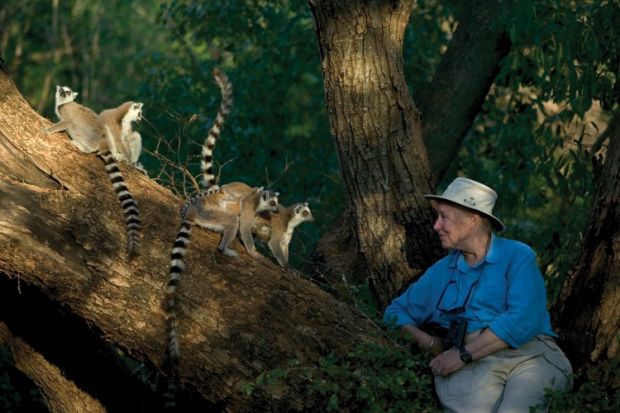Alison Jolly, née Bishop, was born in Ithaca, New York state on 9 May 1937 and studied for a first degree in zoology at Cornell University (1958) followed by a doctorate at Yale University (1962). Although she initially worked on sea sponges, her life changed dramatically when she was asked to “babysit” some lemurs at Yale in 1959 and she decided to become a primatologist.
Starting her fieldwork in the south of Madagascar, Dr Jolly was the first to demonstrate that ring-tailed lemurs (Lemur catta) live in groups where females dominate. She later argued that social interactions are a major factor spurring the evolution of intelligence.
Although she never had a full-time faculty position, Dr Jolly worked as a teaching associate at the New York Zoological Society (1962-64) and later at the University of Zambia, the University of Cambridge, the Rockefeller University and Princeton University. She had an even longer connection with the University of Sussex as a research associate (1971-74 and 1978-81) and, from 2000, as a visiting senior research fellow.
Academic publications by Dr Jolly include Lemur Behavior: A Madagascar Field Study (1966), The Evolution of Primate Behaviour (1972 and 1985) and Lucy’s Legacy: Sex and Intelligence in Human Evolution (1999). She also wrote a more personal account of 40 years’ fieldwork, Lords & Lemurs: Mad Scientists, Kings with Spears, and the Survival of Diversity in Madagascar (2004).
Committed to conserving as well as studying the wildlife of Madagascar, Dr Jolly devoted much time and effort to nurturing a new generation of Malagasy scientists. She also wrote a series of children’s books, published in English and Malagasy, known as the Ako Project and featuring the adventures of six different species (2005, 2012). She followed this with a series in which a girl called Fiddle is visited by ghosts in her home town of Lewes (2012).
Much admired for her work on behalf of the country, Dr Jolly was awarded a knighthood by the National Order of Madagascar in 1998 as well as an honorary doctorate from the University of Antananarivo. In 2006, a new species of mouse lemur was named Microcebus jollyae in her honour.
Dr Jolly died of breast cancer on 6 February and is survived by her husband Richard, a research associate at Sussex’s Institute of Development Studies, two sons and two daughters.
Register to continue
Why register?
- Registration is free and only takes a moment
- Once registered, you can read 3 articles a month
- Sign up for our newsletter
Subscribe
Or subscribe for unlimited access to:
- Unlimited access to news, views, insights & reviews
- Digital editions
- Digital access to THE’s university and college rankings analysis
Already registered or a current subscriber? Login

